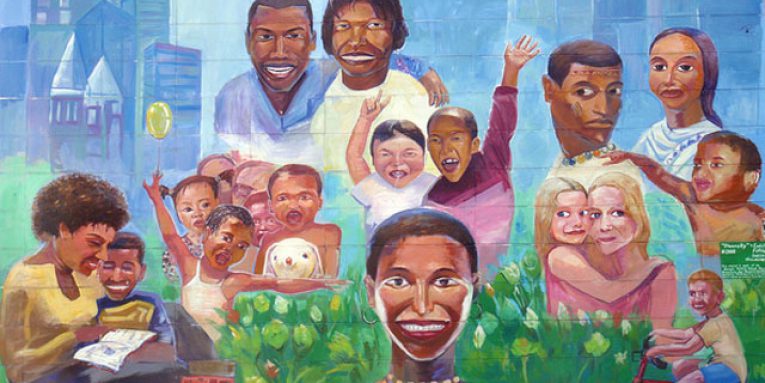05.20.16 – (Centre for Reproductive Rights) A Salvadoran woman wrongfully imprisoned after a miscarriage is being released, according to the San Salvador Third Tribunal of Sentences (Tribunal Tercero de Sentencia de San Salvador) ruling today.
Serving three years of a 40 year sentence, Maria Teresa is suffering from serious health complications stemming from a kidney infection she developed prior to her miscarriage that was left untreated. In its decision, the court determined to absolve her and overturned her conviction.
For more than 16 years, El Salvador has criminalized abortion in all circumstances—even when necessary to save a woman’s life—imposing harsh criminal penalties on both women and physicians. The ban has resulted in the wrongful imprisonment of countless women who have suffered pregnancy-related complications and miscarriages, who are then charged for having an abortion and wrongfully convicted of homicide.
Said Nancy Northup, president and CEO of the Center for Reproductive Rights:
“Maria Teresa’s release is a victory and symbolizes hope for women who have suffered under El Salvador’s unjust laws.
“Women should never face criminal prosecution when they suffer pregnancy complications. Maria Teresa was treated for far too long as a criminal and denied her dignity, freedom, and rights.
“El Salvador must be held accountable for the gross human rights violations endured by every Salvadoran woman who has been wrongfully imprisoned under this needlessly devastating law.”
In November 2011, without ever realizing she was pregnant, Maria Teresa went into early labor, experiencing heavy bleeding and ultimately miscarried in a public restroom. Her family called emergency services and at the hospital the police were called on the suspicion that she induced an abortion.
Despite inconsistencies and lack of proof that Maria Teresa attempted to end the pregnancy, she was convicted of aggravated homicide and condemned to 40 years in prison on June 5, 2012. Although the Ombudsman of Human Rights (Procurador de Derechos Humanos) of El Salvador recently said that Maria Teresa’s rights were violated during her trial, she was in prison until this ruling today.
Before Maria Teresa miscarried, she received medical treatment for both a kidney and ear infection. However, she still has kidney issues that have only worsened since her arrest in November 2011. Despite multiple requests for medical attention, Ilopango Prison refused to provide Maria Teresa any health care while she was in prison.
In December 2014, a coalition of NGOs led by Agrupación Ciudadana and the Center for Reproductive Rights, launched the “Las17” online campaign calling for the release of “Guadalupe” and 16 other Salvadoran women who all suffered obstetric emergencies, were charged for having an abortion and were later convicted of homicide. “Mirna,” one of “Las 17” was released in December after serving her prison sentence before her pardon could be finalized. In February, Guadalupe was successfully released and pardoned, after serving seven years in prison. The remaining 14 women are each currently serving 30-40 year sentences.
Prior to Maria Teresa’s hearing, the U.S. State Department issued a letter this week expressing that the U.S. government has “serious concerns” about the criminal penalties imposed on women in El Salvador who have experienced obstetric emergencies, as well as public health system limitations and the particular impact on low-income women with limited education. The letter also states that the U.S. Embassy has been in contact with the Salvadoran Human Rights Ombudsman about the status of the cases of “Las 17”.
The letter is in response to multiple advocacy efforts made by the Center, Agrupacion and partner organizations before the State Department – including the delivery of nearly 40,000 signatures last October, asking them to take action regarding “Las 17”.
The Center together with the Agrupación Ciudadana filed the case in December 2015 before the Inter-American Commission on Human Rights– a principal human rights body for the Americas—on behalf of nine women who had serious pregnancy complications and are now in prison due to the severe enforcement of El Salvador’s absolute abortion ban. The petition shows an alarming pattern of due process violations in these women’s cases, including the police failing to read them their rights when initially being questioned and the denial of the right to appeal their cases against their wrongful detainment. The case also argues that the women’s rights to personal integrity, health, private and family life, freedom from gender violence, equality before the law and non-discrimination were violated.
“The Center for Reproductive Rights will continue to shed light on the human rights violations faced by Las 17 and women across the country, and let’s not forget there are 14 women left” said Catalina Martinez Coral, regional director for Latin America and the Caribbean at the Center. “We stand with our global and local partners to demand the release of all women wrongfully imprisoned and will not rest until the El Salvador reforms its laws to respect, protect, and fulfill women’s rights to life and health.”
The Center for Reproductive Rights has worked for more than 12 years to expose the consequences that El Salvador’s blanket abortion ban has on the lives of women. Recently, the Center and the Agrupación Ciudadana co-authored the report Marginalized, Persecuted and Imprisoned: The Effects of El Salvador’s Total Criminalization of Abortion that documents the human rights consequences of the abortion ban, and includes the personal stories of five women who were unfairly prosecuted for illegal abortion after suffering obstetric emergencies without receiving medical attention. The report analyzes how El Salvador’s health, judicial and prison systems fail to guarantee women’s human rights.


